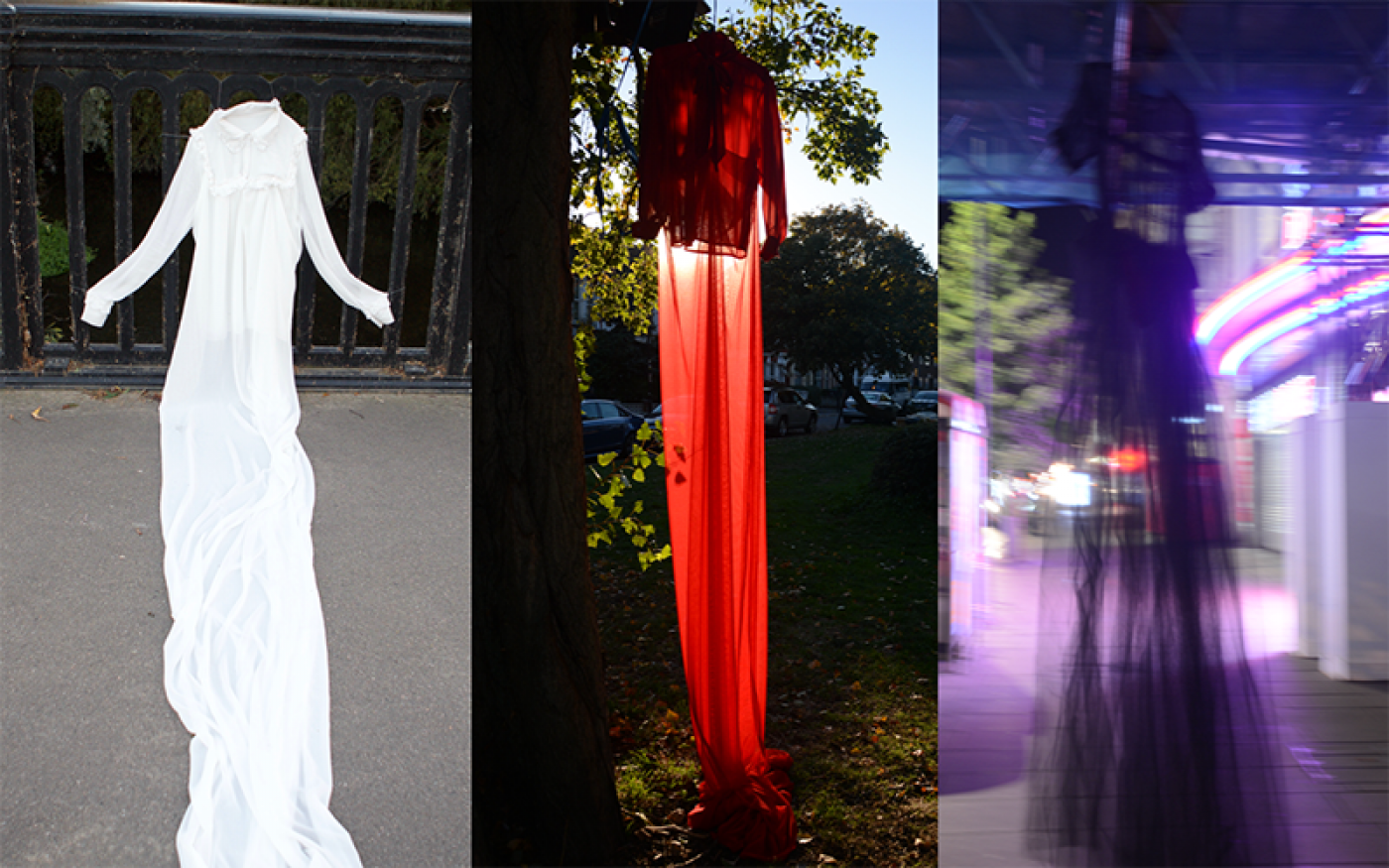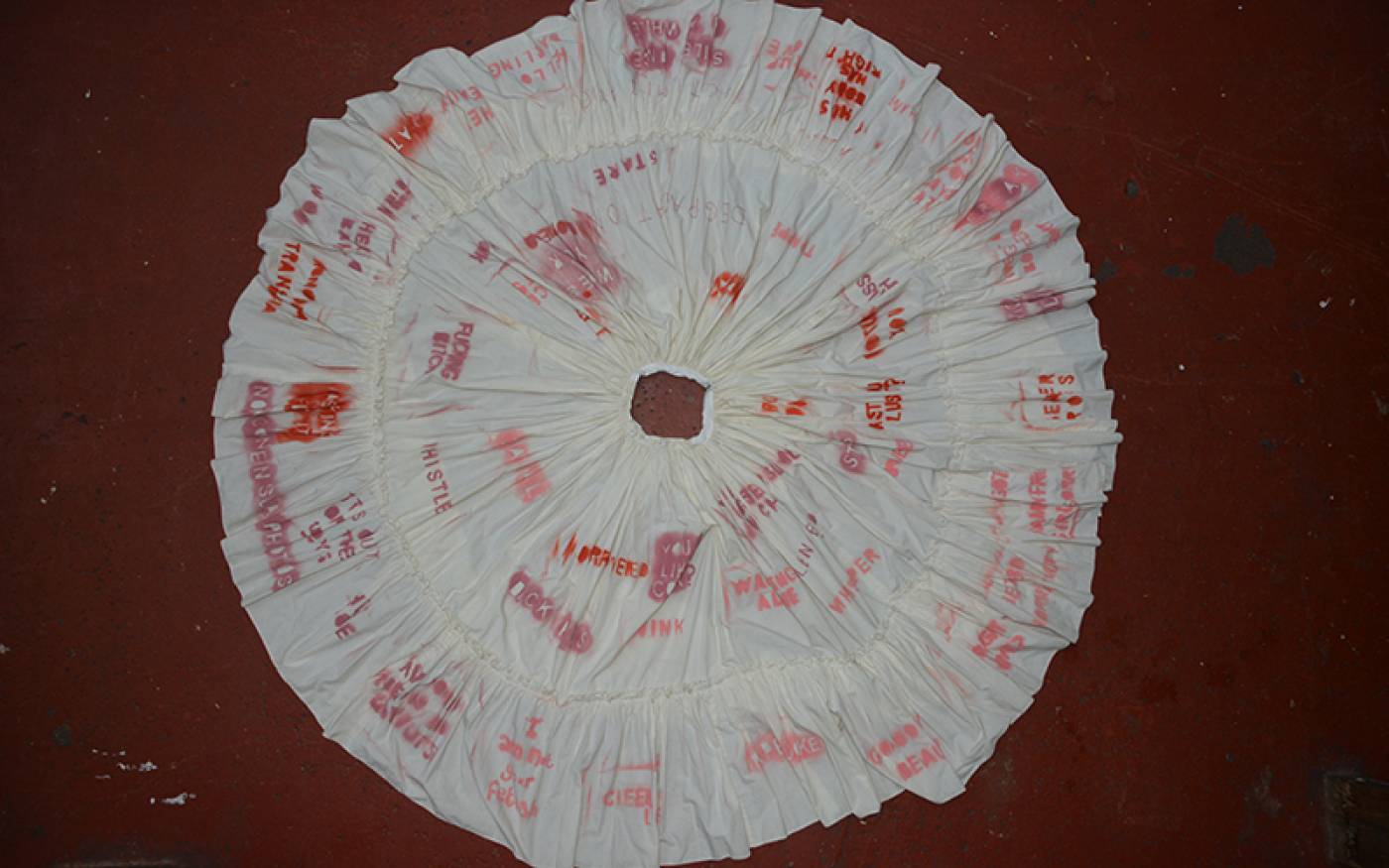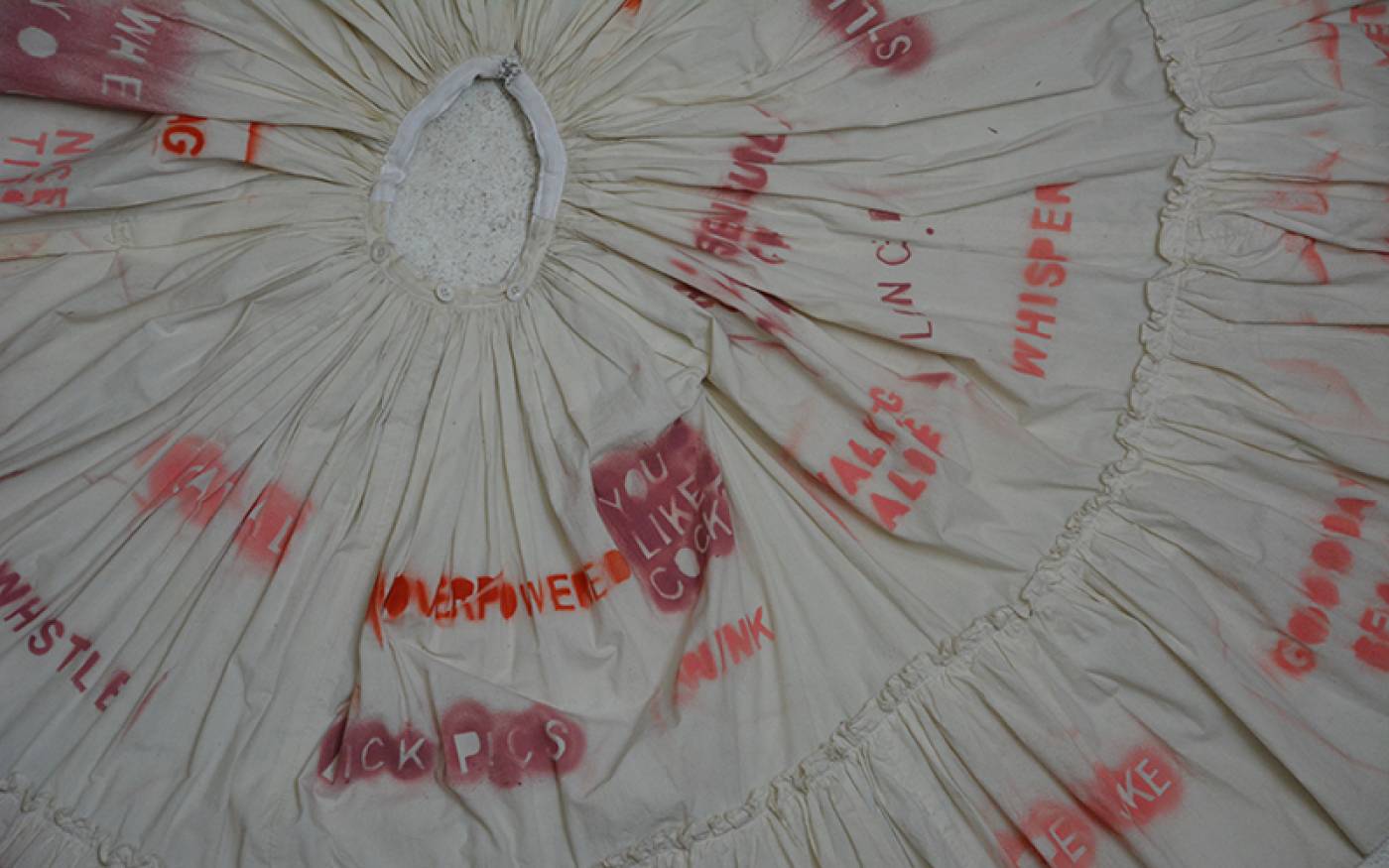Mélia Beaudoin



Sexual crimes are the second most serious offense after murder, and yet they are the least reported. My project aims to identify the everyday roots of gender-based violence via an auto-ethnographic case study approach, which includes a series of workshops that start discussions on street harassment, with the aim of helping its victims heal through the sharing of stories.
I believe that a first step in ending street harassment might start by using the right terminology to name the crimes rather than to cover them up with the use of euphemisms. In order to fight the normalisation of sexual harassment my project aims to highlight the connection between incidents of spoken sexual harassment on the street and more explicitly violent forms of sexual harassment, showing both the amplitude of the problem and its scope.
I have turned the words of abuse I received into stencils to be written again on a skirt, specifically the under-layer of a restrictive form of redundant female fashion: the crinoline. Words spoken to me and others collected on the street are placed on the skirt; as the words get closer to the waistband and sexual zones of the potential wearer of the garment, they become less benign and more indicative of serious incidents.
During a series of workshops, I encouraged other victims of sexual harassment to share their stories and adorn the skirt with their experiences and words. These gatherings are moments for people of all genders to engage in a discussion about patriarchy and its manifestation on the streets. They are an occasion to share stories, and find coping strategies. 100 Days in London: Asking For It aims to initiate a process of healing by acknowledging everyday experiences.
Content warning: please note that this work and associated events include discussions about sexual violence.
 Close
Close

